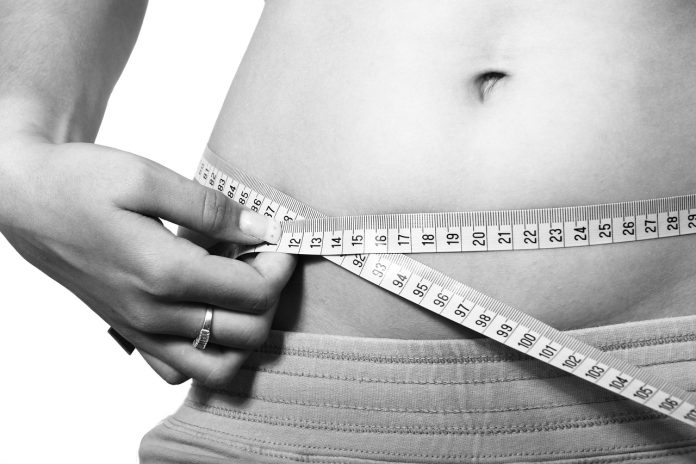Discover how weight loss after uterine polyp removal can be achieved. Learn about effective strategies, potential challenges, and expert tips to navigate this journey successfully.
Introduction:
Uterine polyps, though typically benign, can impact various aspects of a woman’s health, including weight management. Understanding how to navigate weight loss after uterine polyp removal is crucial for maintaining overall well-being. In this guide, we delve into practical strategies, potential challenges, and expert tips to help you achieve your weight loss goals post-surgery.
Understanding Uterine Polyps and Weight Management
What are Uterine Polyps?
Uterine polyps are growths that develop in the inner lining of the uterus. While they are often non-cancerous, they can lead to symptoms such as irregular menstrual bleeding and infertility.
Impact of Uterine Polyps on Weight
Uterine polyps can indirectly affect weight management through their impact on hormonal balance and metabolism. Hormonal imbalances associated with polyps can lead to weight fluctuations and challenges in losing weight.
Strategies for Weight Loss After Uterine Polyp Removal
Adopting a Balanced Diet
A balanced diet of fruits, vegetables, lean proteins, and whole grains is essential for promoting weight loss post-uterine polyp removal. Focus on nutrient-dense foods and limit processed foods and sugary snacks.
Regular Exercise Routine
Incorporating regular physical activity into your routine is vital for shedding excess weight. Aim for cardiovascular exercises, strength training, and flexibility exercises to maximize results.
Managing Stress Levels
High-stress levels can hinder weight loss efforts. Practice stress-reducing techniques such as mindfulness, meditation, and deep breathing exercises to support your weight loss journey.
Overcoming Challenges
Hormonal Imbalances
After uterine polyp removal, hormonal imbalances may persist, affecting metabolism and weight regulation. Consult with your healthcare provider to address hormonal issues and explore treatment options.
Plateauing Weight Loss
Experiencing a plateau in weight loss is common and can be frustrating. Stay motivated by focusing on non-scale victories such as improved energy levels and clothing fit, and consider adjusting your diet and exercise routine.
Expert Tips for Success
Stay Hydrated
Proper hydration is essential for supporting metabolism and promoting weight loss. Aim to drink plenty of water throughout the day and limit consumption of sugary beverages.
Seek Professional Guidance
Consulting with a registered dietitian or nutritionist can provide personalized guidance and support for your weight loss journey. They can help create a tailored meal plan and offer strategies for overcoming obstacles.
Prioritize Sleep
Adequate sleep is crucial for overall health and weight management. Aim for 7-9 hours of sleep per night to support optimal metabolism and hormone regulation.
FAQs (Frequently Asked Questions)
- Can uterine polyp removal lead to weight gain?
- Uterine polyp removal itself is unlikely to cause weight gain. However, hormonal changes and lifestyle factors post-surgery can impact weight.
- Is it normal to experience weight fluctuations after uterine polyp removal?
- Yes, it is common to experience weight fluctuations as your body adjusts post-surgery. Focus on adopting healthy habits to support weight stability.
- How soon can I start exercising after uterine polyp removal?
- It’s essential to consult with your healthcare provider before starting any exercise regimen. They can provide personalized recommendations based on your recovery progress.
- Are there specific foods I should avoid for weight loss after uterine polyp removal?
- While there are no specific foods to avoid, it’s recommended to limit processed foods, sugary snacks, and excessive alcohol consumption for overall health and weight management.
- Can stress impact weight loss after uterine polyp removal?
- Yes, high stress levels can hinder weight loss efforts by affecting hormone balance and metabolism. Incorporate stress-reducing techniques into your routine to support weight loss.
- Is it necessary to track calorie intake for weight loss after uterine polyp removal?
- While calorie tracking can be helpful for some individuals, it’s not necessary for everyone. Focus on consuming nutrient-dense foods and listening to your body’s hunger cues.
Conclusion:
Achieving weight loss after uterine polyp removal requires a combination of healthy eating, regular exercise, and lifestyle modifications. By following these strategies and seeking professional guidance when needed, you can navigate this journey successfully and improve your overall well-being.
Also Read: TMJ and Ear Pain: Connection and Exclusive Treatment Options
Alpilean The Alpine secret for healthy weight loss
click Here to Buy
Affiliate Disclosure:
The links contained in this product review may result in a small commission if you opt to purchase the product recommended at no additional cost to you. This goes towards supporting our research and editorial team and please know we only recommend high quality products.
Disclaimer:
Please understand that any advice or guidelines revealed here are not even remotely a substitute for sound medical advice from a licensed healthcare provider. Make sure to consult with a professional physician before making any purchasing decision if you use medications or have converts following the review details shared above. Individual results may vary as the statements made regarding these products have not been evaluated by the Food and Drug Administration. The efficacy of these products have not been confirmed by FDA approved research. These products are not intended to diagnose, treat, cure or prevent any disease.




